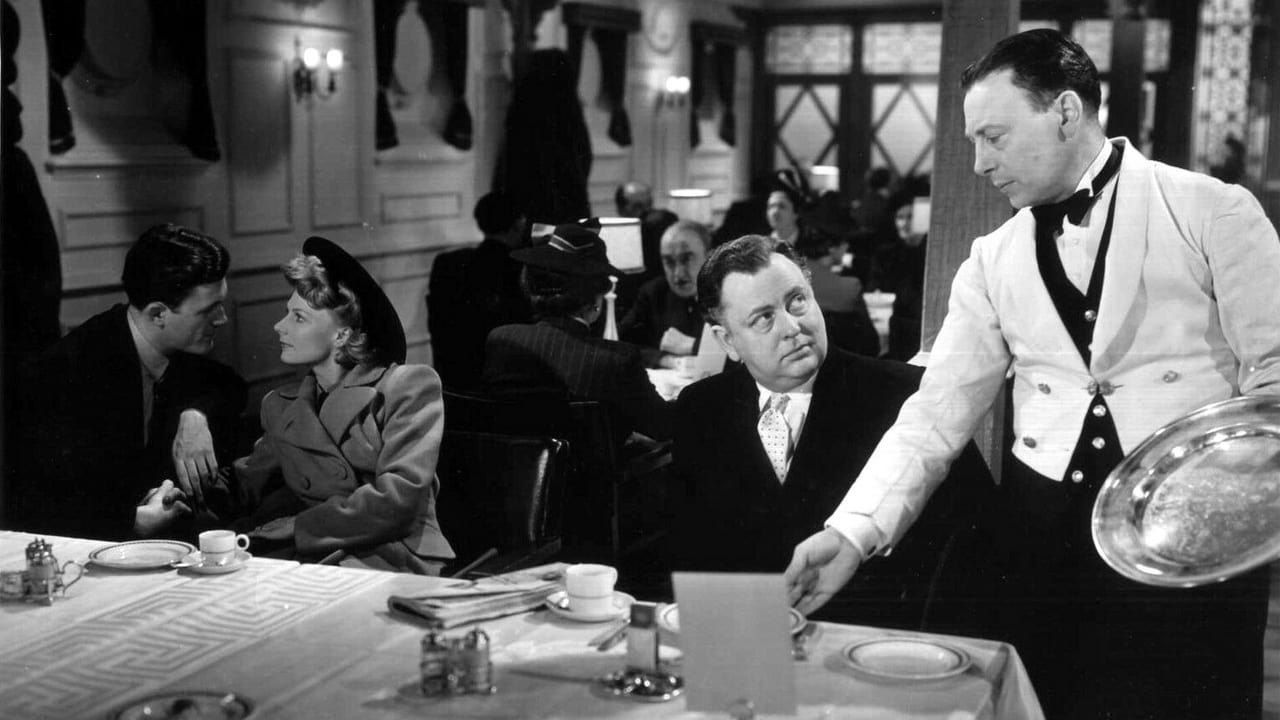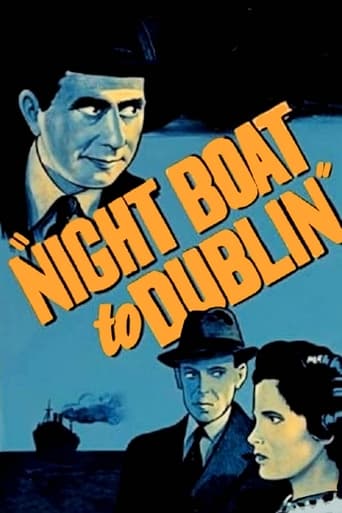Gutsycurene
Fanciful, disturbing, and wildly original, it announces the arrival of a fresh, bold voice in American cinema.
Joanna Mccarty
Amazing worth wacthing. So good. Biased but well made with many good points.
Kaelan Mccaffrey
Like the great film, it's made with a great deal of visible affection both in front of and behind the camera.
JohnHowardReid
I first made the acquaintance of Lawrence Huntington's Night Boat to Dublin on its first release in 1946. I've since reviewed the film another four or five times. On each occasion, this suspenseful spy drama has stood up exceedingly well to re-examination. Huntington's direction is imaginatively forceful, Otto Heller's lighting photography resourcefully noirish. Production values are lavish. While the script incorporates plenty of action, it moves at a commendably fast clip and, most importantly, features some really outstanding performances.In the leading role, Robert Newton makes playing the part of a British agent who is playing the part of playing a part (!) look easy. While Newton accomplishes this astonishing feat with admirable ease, some of the supporting actors lag not too far behind, particularly Joan Maude as the artist, Raymond Lovell as the spy, John Ruddock as his cohort, Leslie Dwyer as a too-shrewd steward, Brenda Bruce as his vampish shrew of a wife, and Muriel Pavlow as the refugee.
trimmerb1234
This 1946 British film is very much in the mould of John Buchan's 39 Steps, filmed in 1936 with the stylish Robert Donat, and as well the Ashenden stories. In all, the heroes had brains and style. This too is fairly exciting but not in the league of the others. It perhaps is not obvious now but in just-post-war austerity rationed Britain, the Robert Newton character, as too his colleagues, is extremely well and stylishly dressed - the over-coats especially. Only the wealthy, film-stars or a gangster would have dressed like this at that time. Newton too is not simply stiff-upper lipped, he gives the character the full charismatic beans: low-key, cool and brave marks him as a man and a hero apart. Clever, resourceful, undaunted, stylish - this was the last call for the British filmic hero-star. It was the world of Ian Fleming as he would like it to be seen. (Bond on film was never obviously clever - it was the gadget which usually saved him).From this time onwards, the hero who could out-think, out-drink and out-punch the enemy, and always get the girl, was imported principally from USA. Brits in British productions became reduced to supporting roles. If male, if a goody then slow-witted, loyal and liable to get shot. If baddies, clever but fatally flawed. If female, beautiful and life-long loyal to the hired-in hero. Bond marked a change but was never persuasively intelligent.This film however has Newton as the brilliant brave Hero. Even Guy Middleton - perennial film drunken waster -gets a makeover in the brain and bravery departments. Like its wartime predecessors - the baddie often played by Raymond Lovell, who seemed to specialise in being something of a pushover though as here. Newton, as all heroes do,gets the girl - here the lovely Muriel Pavlow.
Leofwine_draca
NIGHT BOAT TO DUBLIN is a fun spy thriller that must have been shot in the dying days of World War 2. Espionage and its deadly results are the name of the game here, as the British authorities pursue a Nazi organisation running out of Ireland and in particular aim to rescue a kidnapped Swedish scientist who may have the secret to unlocking the atomic bomb. Half of the action is centred around the titular ship, with plenty of cloak and dagger shenanigans to pass the time.And this film certainly passes the time well enough, coming across as fast paced and with just the right level of suspense to see it through. There's an early plot twist to rival PSYCHO and a delightfully urbane villain in the form of the charming Raymond Lovell, who has a real ball with the part. The sneaking around in hotel room material is good fun, too, and Robert Newton is a British hero in the finest stiff-upper-lip tradition. A triumvirate of Herbert Lom, Marius Goring, and Leslie Dwyer flesh out villainous parts, and the action-packed climax is delightful.
robert-temple-1
This film, issued in 1946, may have had some last minute plot changes made to it, as I suspect it was written and planned before the War actually ended. There is still a ring of Nazi agents at work in this film, but the War is now over and the Nazis have become an international organisation trying to steal the secrets of the atomic bomb and sell them to other hostile powers or organisations. (This is not unlike the scare stories still prominent in today's newspapers on a weekly basis, though the villains who threaten to destroy us all are constantly changing, it seems.) 'The Irish Free State' is still a bogey in the film, where the Nazis feel very much at home, which shows how embittered the British were at the so-called 'neutrality' of Ireland during the War. Hence the many trips on the night boat to Ireland which occur in this story. Unlike real ferry journeys across the Irish Sea, which can be horribly rough crossings, all of these take place on a flat sea without any waves. Funny that! Robert Newton in a slouch hat is the lead player, and the look of whimsy on his face is not always appropriate for moments of high tension. Wilfred Hyde Whyte has a few seconds on screen as an eccentric taxi driver. Herbert Lom has a few scenes as one of the Nazis, as does Marius Goring. The issue of this film on DVD is a pleasure to watch, because it has been taken from a perfectly preserved negative, rather than some battered old print, and the images are as crisp as the day they were made. Many of the period aspects of this film are amusing and interesting to watch, especially those featuring trains and railyards. The manners of the time never cease to be fascinating, and even the Nazis are polite as they stick a gun in your side and say they deeply regret that they will have to kill you. Brenda Bruce has a scene as a shrieking harridan who wants to go out and have a good time and nobody is going to stop her, especially not her older husband, Leslie Dwyer, a steward who has been paid for doing some favours for the Nazis on board the Irish ferry because she taunted him for never having any money. Lawrence Huntington directed this film, and it is good for a rainy afternoon.

